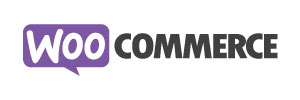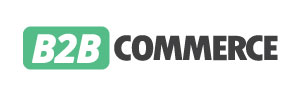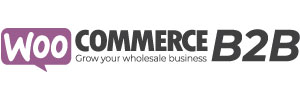Short for “venture resource preparation,” IQ Retail software takes care of necessary service info by managing your accounting, client database, making routines, materials administration, purchasing, as well as shipping.
What is IQ Retail integration?
Put simply, B2B IQ Retail integration is the approach of connecting as well as integrating data between an IQ Retail system and other data sources. IQ Retail software integration assists you centralize info from different systems and view it in real time, whether the data comes from the IQ Retail or various other systems. Numerous B2B companies integrate IQ Retail with their CRM as well as eCommerce platforms to improve company operations and raise collaboration between teams..
Clearly, IQ Retail is a powerful company device. And because your eCommerce platform is a powerful sales tool, it needs to function and also play well with your IQ Retail. Hereof, IQ Retail integration is important for organizations, because it allows them to share information across systems, boosting efficiency and understandings and also creating a solitary resource of truth..
Nevertheless, eCommerce integration with IQ Retail isn’t always as very easy as you assume it may be. That’s because of the nature of your IQ Retail and what it has. So allow’s dive into the essential IQ Retail integration challenges for B2B eCommerce:
Data Variety and Volume
Your IQ Retail is the repository of your company’s historic data. That’s terrific because you require this information to examine whatever from manufacturing trends to the result of seasonality on sales. Nonetheless, the huge range of info in the IQ Retail postures a challenge by itself. That’s because with any kind of data system, the extra information areas you have, the more difficult the integration..
For effective integration, you need an IQ Retail integration technique. It implies that you require to identify at an early stage throughout planning specifically what information in the IQ Retail ought to be integrated as well as integrated with your eCommerce system. In order to do this, you have to first understand the kinds of data that will be shared in between the IQ Retail as well as eCommerce systems and also why sharing this data is essential.
- Product Information — To make sure that customers obtain the item they buy properly, item names, SKUs, and also summaries should match.
- Customer Information — Precise delivery and billing need that call details, shipping info, payment terms, as well as credit score standing be shared.
- Pricing — Considering that the majority of B2B purchases are based upon worked out prices, the suitable costs as well as policies should be utilized by both systems.
- Delivering — Satisfaction policies, shipping logistics, order condition as well as expense of lading info needs to move in between the two systems for delivery, supply, and account monitoring objectives.
- Stock — Customers, buying managers, and also warehousing employees all depend on updated inventory info. This indicates inventory status (e.g., in stock, back-ordered, ceased), amounts, and also lead times must be collaborated as well as integrated.
- Order/Invoice Info — Bookkeeping groups, customer care associates, and clients need accessibility to total order information. This includes info on existing orders and also well as prior order background. This indicates sharing data on the order line products, prior order/invoice history, existing order/invoice standing, status for sale as well as order, as well as repayment details.
- Tax obligations — Interstate and also international transactions go through a range of tax codes, rules, and rates. The eCommerce and IQ Retail systems should share this data instantly to enhance compliance as well as decrease threat. Tax codes, prices, and also guidelines must be shared between both systems.
- Returns — Because accidents, defects, and delivery mistakes happen, return merchandise permissions and credit rating memoranda are part of working. Both systems must share this data, so clients and staff members have access to the exact same account information.
In addition to the data provided above, the whole size of the databank need to be taken into consideration. If your IQ Retail consists of information on hundreds of thousands to millions of SKUs, your eCommerce platform must be able to take care of that volume of information too.
Older Technology
Since IQ Retail is essential in handling a company’s success, the modern technology isn’t changed commonly. Updating may or may not have actually occurred. It’s not unusual for also upgraded an IQ Retail to be based on older technology. A current IQ Retail for suppliers could be based on software that is anywhere from 10 to 20 years old. From a functional stand-point, an IQ Retail for production might not easily fit connection right into third-party systems. This older modern technology can make integrations a lot more intricate as the obsolete innovation must effortlessly marry to the new innovation. Usually, in a heritage IQ Retail environment, IT departments might have invested years configuring the system, dealing with concerns, as well as producing workarounds. Which leads us to the third attribute of why IQ Retail system integration is facility.
Extensive Customization
Since no 2 organizations are alike, IQ Retail systems typically do not function well without some level of modification. Chances are your IQ Retail setup has actually been so customized that it isn’t similar to any kind of installments of the same software program at other companies. Your IQ Retail installation is distinct to your business’s demands as well as operations. That’s an advantage. Yet, special IQ Retail setups call for an unique eCommerce integration, as well.
Because IQ Retail includes comprehensive information, counts on older innovation, as well as has been distinctively customized, attaching it with your eCommerce platform, for instance, IQ Retail B2B eCommerce integration, can be difficult. You’ll require to decide which system will be the master information resource. Will it be the IQ Retail or the eCommerce system? Due to the fact that the IQ Retail has tentacles that expand into every department and feature, it will more than likely be your master data source. But that isn’t always the instance. That’s why it is very important to have that internal conversation as well as formally determine the master data resource early in the planning stages. Falling short to develop a detailed integration strategy can result in hold-ups, additional costs, and additional initiative. With all of this in mind, what are the secrets to an effective IQ Retail and B2B eCommerce integration?
Contact the Storehub.io sales team to book a consultation.
See More on: Sage Business Cloud eCommerce Integration












